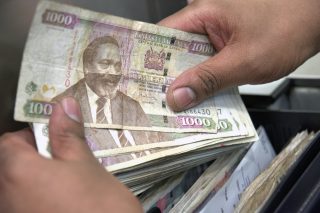Kenyans still in possession of the old Ksh1,000 banknotes may find themselves at a loss as the October 1st deadline for swapping the notes with new ones approaches.
The Governor of the Central Bank of Kenya (CBK) Patrick Njoroge, had in June introduced new 1,000 shilling banknotes and gave a transitional period of four months for all citizens to exchange their notes.
Today, September 30, marks the last day for the old banknote. This means that heading into the new month, the former Ksh1,000 note will no longer be recognized as a legal tender in the East African nation.
The apex bank’s governor also included in his instruction that those exchanging less than five million shillings should do so at their local banks while those with higher amounts will need approval from Kenya’s central bank before they can have access to the new banknotes.
Introducing new banknotes, while phasing out the old ones in Kenya is part of the government’s efforts to crack down on a series of corrupt practices affecting the country. These include embezzlement of public funds, illicit financial flows, and money laundering, as well as production and circulation of counterfeit banknotes.
While demonetization is generally considered a good move in the fight against corruption, some Kenyans are not excited about this change, particularly on the look of the new currencies.
Most Kenyans are reportedly perplexed as to why the face of the country’s first president – President Jomo Kenyatta – is on the new 1,000 shillings note. This goes against the Constitution of Kenya 2010, which states that money – both coins and banknotes – should not feature a portrait of an individual.
Although Okiya Omtatah, Human Rights Activist, is challenging the decision of having Jomo Kenyatta on the face of the new 1,000 shilling note, the Kenyan government still stands by its decision to circulate the new 1,000 shilling note and wipe out the old banknotes, rendering them useless and of no value.
Shop owners reported that a large number of transactions have been made in the past few days by cash. This signifies that Kenyans are adhering to the directive of CBK, trying to dispense the old 1,000 shilling notes they have left before October.
By Treasure Nnabugwu








